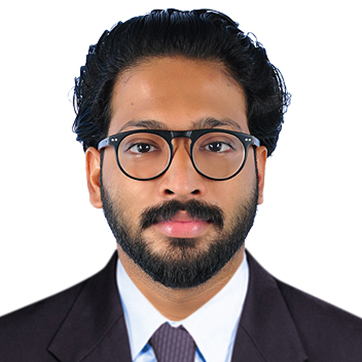Islamic Finance
Home » Departments » Islamic Finance
Department of Islamic Finance
The Department of Islamic Finance at Darul Uloom Arabic College offers a unique and future-oriented academic experience that bridges traditional Islamic economic principles with modern financial systems. This dynamic discipline provides students with a comprehensive understanding of both conventional and Shariah-compliant finance, preparing them for impactful careers in the fast-growing global Islamic finance industry.
The curriculum spans a wide spectrum of vital topics including:
- Islamic Economic Thought
- Socio-Economic Structures in Islam
- Islamic Commercial Law (Fiqh al-Muamalat)
- Takaful (Islamic Insurance)
- Indian Financial System & Financial Management
Since its inception in 2015, Islamic Finance has been an integral part of the academic landscape at Darul Uloom Arabic College. The program has been enriched by the contributions of some of the most distinguished scholars in the field, including Dr. Shaheed Ramadan, Dr. Abdullah Kavil, Dr. Muhammad Palath, and Dr. A.I. Rahmatullah—each bringing academic depth and global perspective into the classroom.
Currently offered at the Master’s level (M.A. Islamic Finance), the program follows the University of Calicut’s semester system and is structured to ensure holistic learning. Students undertake 17 courses over four semesters, including:
- 13 Core Courses
- 4 Elective Courses
- Comprehensive Project Work
- Viva Voce Examination
Electives are chosen in the third and fourth semesters, allowing students to specialize in emerging areas of interest. The program also includes Audit Courses to enhance cross-disciplinary understanding.
The department is led by a dedicated team of three faculty members, actively engaged in teaching, research, mentoring, and institutional development. Beyond classroom teaching, the department organizes:
- National and State-level Seminars
- Workshops and Expert Lectures
- Industrial Visits and Field-based Training
These activities provide students with valuable real-world exposure, opportunities to exchange ideas, and tools to conduct in-depth academic and applied research.
Graduates from this program are equipped with the knowledge, skills, and ethical foundation to pursue careers in:
- Islamic Banks
- Financial Institutions
- Corporate Finance
- Research and Academia
- Global Development Organizations
If you’re passionate about combining ethical finance, social justice, and economic expertise, the Department of Islamic Finance at Darul Uloom Arabic College is your ideal platform to grow, contribute, and lead.
Islamic Finance attempts to study the whole range of economics & finance. Its main topics include the socio-economic structure, Islamic economic thought, Islamic commercial law, Islamic banking, Islamic capital market, Islamic insurance.Besides these it also focus on Indian financial system and financial management.
Islamic finance has been a part of Darul Uloom Arabic College curriculum since 2015. Prominent scholars of Islamic finance have taught Islamic finance in Darul Uloom Arabic College as an optional as well as a compulsory subject. To name a few, Dr. Shaheed Ramadan. Dr. Abdullah Kavil, Dr. Muhammad Palath, Dr. AI Rahmatullah.
The Department offers course at Masters level. The Department has adopted semester system .The structure of the programme is the students are required to take 17 courses (13 Core courses and 4 Elective courses) + Project work and Comprehensive Viva voce over a four Semester period. The programme shall include three types of courses such as Core Courses, Elective Courses and Audit Courses. The students have to choose 2 elective course of 3 credits each in 3rd Semester, and 2 elective courses of 3 credits each in 4th semester.
The Department of Islamic Finance presently has positions of 03 lecturers.The teachers are actively engaged and involved in academic, semi-academic activities and they also contribute to the corporate life of the college in different capacities. The Department conducts seminars, workshops, industrial visit and training programmes for the students.It helps the students to get the in-depth study of the facts, concepts, exchange information etc.



